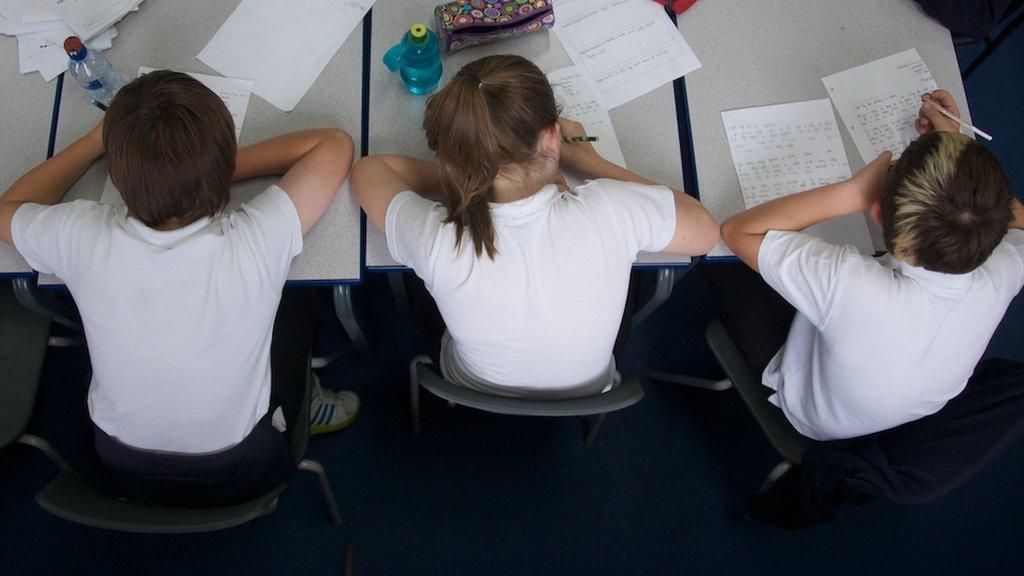Latest Scots school attainment gap funding set out
- Published
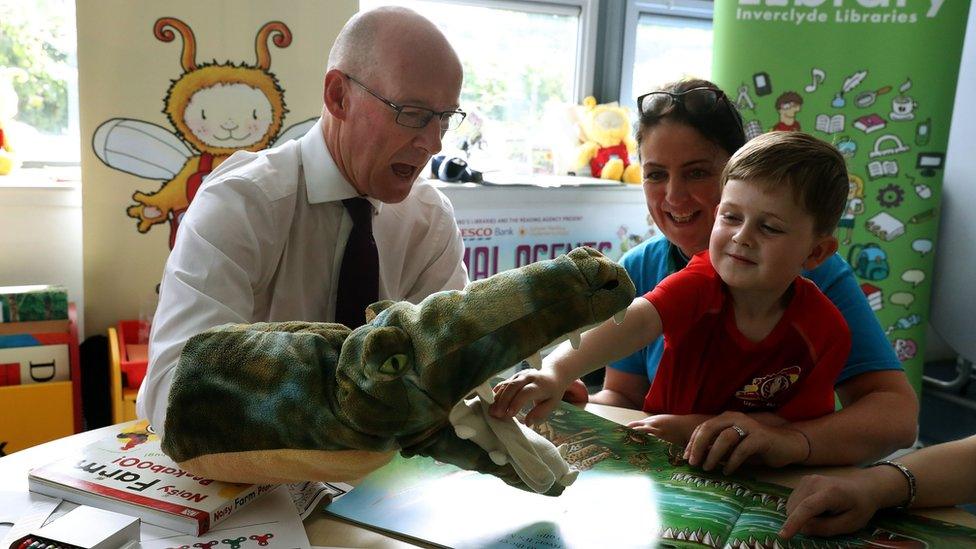
Education Secretary John Swinney said boosting schools was the government's "defining mission"
The Scottish government has set out where £45m of funding to tackle the attainment gap in schools will be allocated over the coming year.
The latest round of funding will go to the nine councils with the highest concentrations of deprivation, along with 72 schools in other poorer areas.
Education Secretary John Swinney said boosting schools was the Scottish government's "defining mission".
Opposition parties said the funding did not go far enough to tackle problems.
The Scottish Attainment Challenge fund will distribute £750m to primary and secondary schools over the course of the current parliament, aimed at cutting the poverty-related divide in attainment.
Funding packages ranging from £1.5m to £7.7m will go to local authorities in Clackmannanshire, Dundee, East Ayrshire, Glasgow, Inverclyde, North Ayrshire, North Lanarkshire, Renfrewshire and West Dunbartonshire.
Funding is also being sent directly to 72 schools in other local authority areas, with more than £2m being distributed in South Lanarkshire and almost £1m in the Highland council area.
'Defining mission'
Announcing the allocation for 2017/18 during a visit to Newark Primary School's holiday club in Port Glasgow, Mr Swinney said the cash was providing a "very real benefit" for children and young people, their families and the wider community.
He said: "Today's announcement ensures local authorities and individual schools where the need is greatest have substantial additional funding for the coming year to tailor their plans based on their own circumstances.
"Improving the education and life chances of our children and young people is the defining mission of this government.
"Central to this is the Scottish Attainment Challenge, which is providing £750m during the course of this parliament to tackle the poverty-related attainment gap by supporting hundreds of schools develop approaches to improve literacy, numeracy and health and well-being."
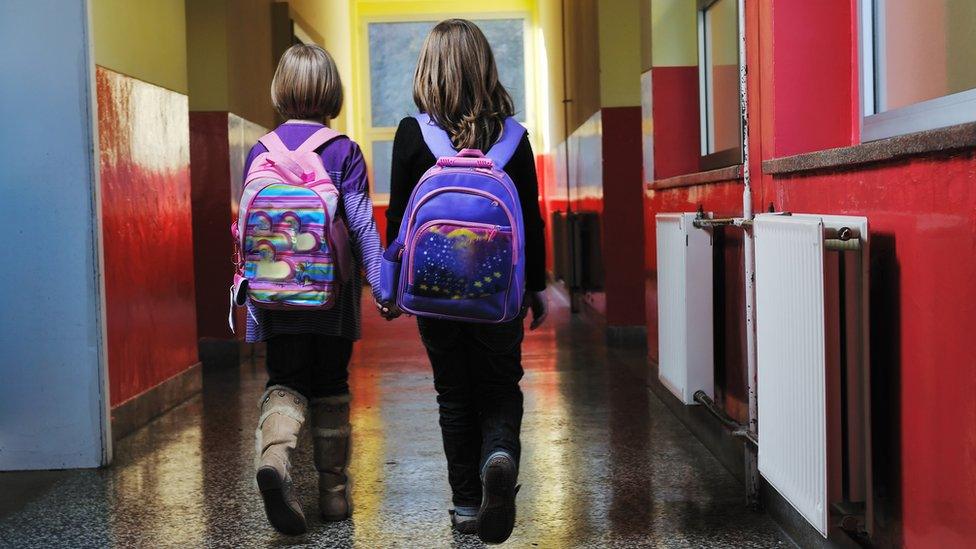
Opposition parties welcomed the funding, but said it did not go far enough.
Scottish Conservative education spokeswoman Liz Smith said money should "follow the pupil" instead of being targeted at schools.
She said: "Schools often have a considerable mix of pupil background and attainment level - hence the reason why we have argued the money should follow the child.
"It is clear that deprived pupils in local authorities such as Aberdeenshire and Perth and Kinross, will not benefit from this next wave of funding. This is worrying, as it appears that a postcode lottery problem is emerging, and deprived children will missing out."
Meanwhile, Scottish Greens education spokesman Ross Greer said the funding was not enough to reverse "the decade of cuts to teachers, support staff and resources", arguing that significant investment was also needed in "better paid jobs, warmer and more affordable homes and strong public services".
Literacy study
The announcement comes on the same day as the Scotsman newspaper reported, external a study of youth literacy across the UK by Keith Topping, a professor at Dundee University.
Prof Topping found Northern Irish students making the most improvement in reading, with pupils in England also outperforming those in Scotland and Wales. He said that "the current evidence is that Northern Ireland and England are moving significantly ahead of Scotland in terms of literacy performance".
Scottish Labour's education spokesman Iain Gray said: "For all Nicola Sturgeon's claims that education is her 'defining mission', we are trailing behind other parts of the UK in addressing the issue.
"This is the legacy of a government which claims to care about schools, but has cut teacher numbers by 4,000, and continues to cut spending on each pupil's education."
In response to the study, a Scottish government spokeswoman highlighted the attainment funding as well as the First Minister's Reading Challenge, a dedicated programme aimed at encouraging young Scots to read, which she said had proved to be "hugely successful".
- Published9 May 2017
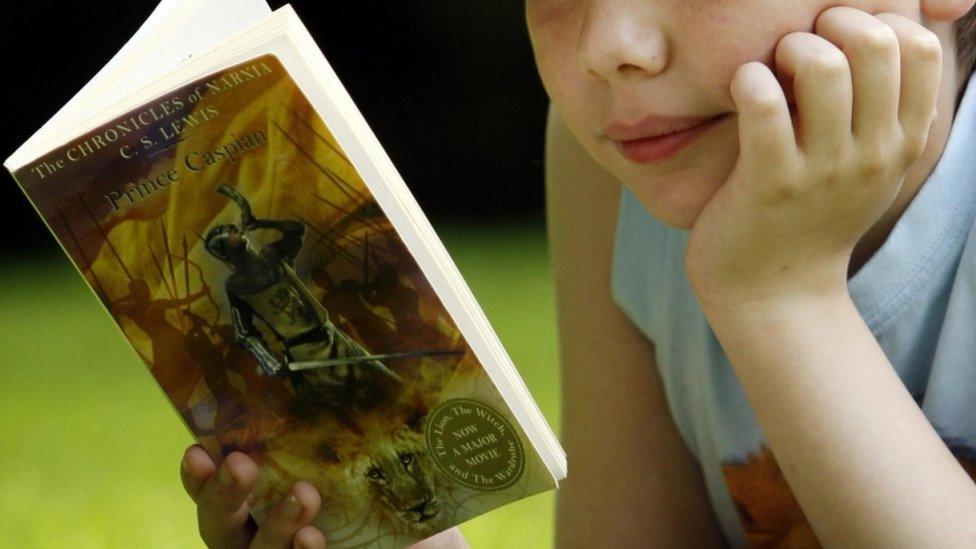
- Published9 February 2017
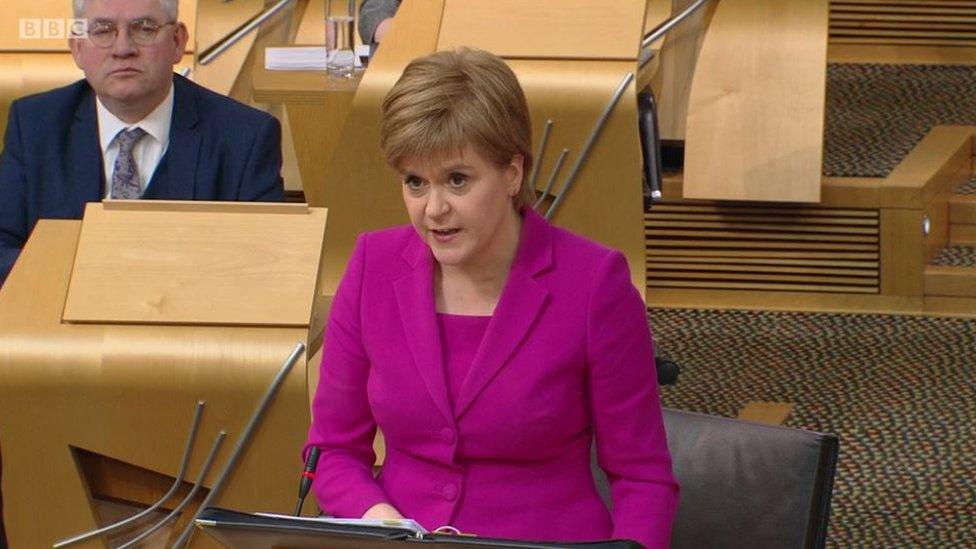
- Published1 February 2017
